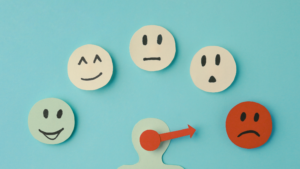It’s Okay to Not Be Okay: A Guide to Mental Health Support and Healing Post-Adoption
Choosing adoption is an act of profound love, but it’s also one of the most emotionally challenging decisions a person can make. It’s natural to feel overwhelmed by waves of grief, guilt, sadness, or even relief. These feelings are valid, and it’s important to remember: it’s okay to not be okay. Healing is a journey, and you don’t have to walk it alone.

Every step tells a story. Walk at your own pace and cherish the journey. #MindfulMoments #TakeItSlow
Understanding Your Emotions
Adoption involves complex emotions that may arise immediately or long after the decision. Here’s what you might feel—and why it’s normal:
- Grief: It’s okay to mourn the life you envisioned for yourself and your child.
- Guilt: Second-guessing your decision doesn’t mean it wasn’t the right one.
- Relief: Feeling peace doesn’t make you a bad person—it reflects your love and hope for your child’s future.
- Numbness: Sometimes, emotions feel too big to process all at once.
These emotions don’t define your strength; they’re a natural response to a life-altering decision.
Why It’s Okay to Not Be Okay
Society often expects us to “move on” quickly, but healing takes time. Feeling down doesn’t mean you’re weak; it means you’re human. Acknowledging these emotions is the first step toward healing.

It’s okay to feel all the emotions—good days and bad days are part of the journey. #MentalHealthMatters #ItsOkayNotToBeOkay
Consider this:
- Suppressing your feelings can make them harder to manage later.
- Talking about your struggles is a sign of courage, not weakness.
- You deserve compassion—from yourself and others—on this journey.
Steps to Support Your Mental Health

Self-love is the best kind of love. Embrace who you are, flaws and all. #SelfCare #LoveYourself
Caring for your mental health after adoption isn’t just important—it’s essential. Here are some ways to start:
- Talk to Someone You Trust
- Open up to a friend, family member, or peer who understands.
- Join a birth mother support group like those offered by Birth Mom Buddies.
- Seek Professional Help
- Therapists trained in adoption-related grief can provide tools to process your emotions.
- Many online therapy platforms offer affordable, accessible options.
- We are working on this too! Hopefully, we will be able to assist with this soon!
- Practice Self-Compassion
- Replace negative self-talk with affirmations: “I made this choice out of love.”
- Allow yourself to feel emotions without judgment.
- Lean on Resources
- Explore free mental health apps for mindfulness and stress relief.
- Visit online communities for birth mothers to find shared experiences.
You Are Not Alone
Feeling overwhelmed doesn’t mean you’re failing—it means you’re processing something profoundly impactful. Reach out for help when you need it, and know that there’s no timeline for healing. At Birth Mom Buddies, we’re here to walk alongside you every step of the way.
If you’re struggling, explore our resources or connect with us for support.
Remember: It’s okay to not be okay—and there’s always hope for brighter days ahead. At Birthmom Buddies, we will strive to help your healing. Don’t hesitate to reach out. We believe in you. You will get through this!

